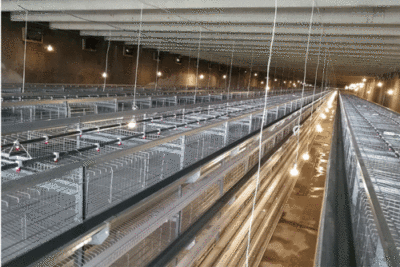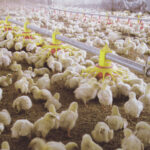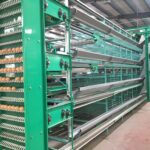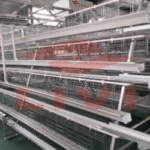Several key points to pay attention to in chicken cages
When farmers use chicken cages to raise chickens, various problems will arise. Therefore, chicken farmers must regularly check the status of the chicken coops and chicken cages, the sooner they are found, the faster the solution will be, and the economic losses of the farmers will be reduced.
Check humidity
Check whether the humidity meets the standard. Microorganisms are easy to survive in high humidity, and the hazard of low temperature is more serious if accompanied by low temperature. If the humidity is low, the chicken house is dry, and the chickens are prone to respiratory diseases, especially the young chickens. The long-term dry environment can make the young chickens dehydrated and weakened. Therefore, we must pay attention to the adjustment of the humidity of the chicken house.
Feces check
Check the color of the stool and whether there is blood in the stool. Generally speaking, chicken feces are soft, and some feces are in strips. Some diseases can cause diarrhea in chickens, such as infectious bursal disease and infectious bronchitis. The feces of chickens are yellow and white; chickens have green, yellow and white watery feces when they are suffering from Newcastle disease; there are bloody stools in the house, and most chickens are infected Coccidia. When the above abnormal stool is found, necropsy is given if necessary.
Check temperature
For chickens, temperature is very important. Seeing chicken temperature is a common method of use. Check whether the temperature on the thermometer is consistent with the actual temperature required. If the temperature is very different, immediately take measures to increase or decrease the temperature to keep the temperature within the required range.
Check ventilation
Check if the ventilation is good. Especially in the case of low temperature in winter, people often only pay attention to keeping warm and neglect normal ventilation. When the ventilation is good, the chickens are lively and there is no peculiar smell in the house, especially when the temperature and ventilation are up to the standard, there will be a comfortable feeling. If the chickens are found to be disease-free, wheezing, having a strong peculiar smell, and dusty, it means that the ventilation in the chicken house is extremely poor, and ventilation should be strengthened immediately.
The above is the chicken raising skills shared by the poultry equipment manufacturers. I hope that the farmers can provide a better living environment for the chickens based on the above information.












